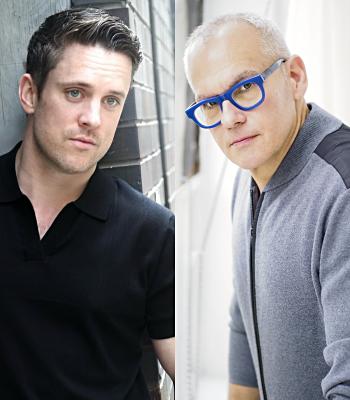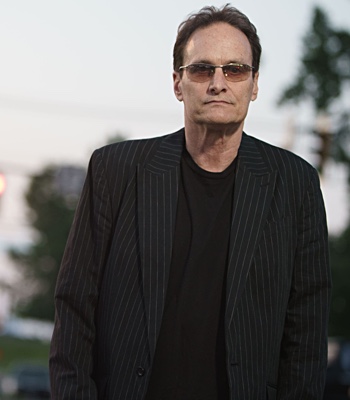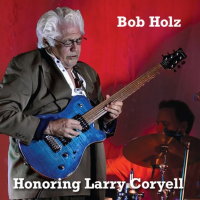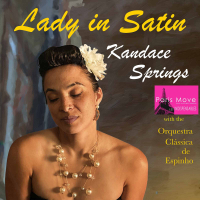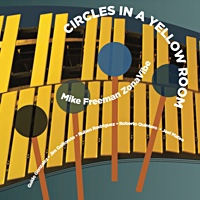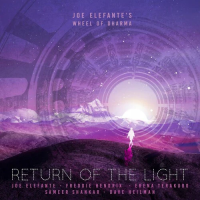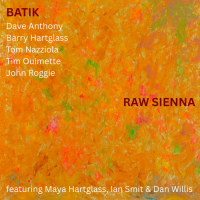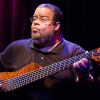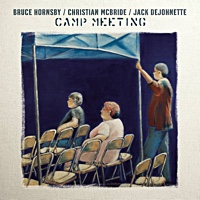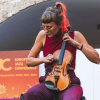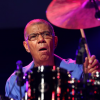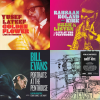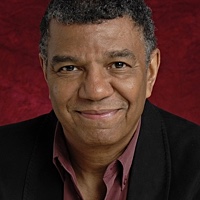Home » Search Center » Results: Russell Perry
Results for "Russell Perry"
My Brainwaves in His Head, and His in Mine - Duke Ellington & Billy Strayhorn (1941 - 1967)

by Russell Perry
Duke Ellington was the well-spring that flowed through many decades of jazz. In 1938, Ellington found his soul-mate in composer/arranger Billy Strayhorn. By the early 1940s, Strayhorn combined with bassist Jimmy Blanton and tenor saxophonist Ben Webster to reinvigorate both Ellington and his band. In this hour, we will feature the compositions and arrangements of Ellington's ...
Jazz on Central Avenue - Bebop in Los Angeles (1945 - 1948)

by Russell Perry
Most of the pioneering bebop musicians we have featured in the past several programs were based in New York—Bird, Dizzy, Monk, Bud Powell, Coleman Hawkins, Fats Navarro, J.J. Johnson, Max Roach. While New York may have dominated the modern music scene, it wasn't the only scene. The wartime economy in southern California brought an influx of ...
Tadd Dameron, Fats Navarro, Sonny Stitt & JJ Johnson (1946 - 1950)

by Russell Perry
In the past several hours of Jazz at 100, we have featured the music of Dizzy Gillespie, Charlie Parker, Miles Davis, Bud Powell, Thelonious Monk, and Max Roach. In this hour, we will continue to present bebop innovators—pianist/composer Tadd Dameron and his frequent (but short-lived) collaborator Fats Navarro, the next great bebop trumpeter after Dizzy Gillespie, ...
The Genius of Modern Music, Thelonious Monk on Blue Note (1947 - 1950)

by Russell Perry
(If the Mixcloud player for this program is unavailable in your country, please scroll down and listen via Soundcloud.) In 1940, Minton's Playhouse on West 118th Street hired drummer Kenny Clarke as a bandleader. For the house band, Clarke hired trumpeter Joe Guy, bassist Nick Fenton, and an eccentric pianist named Thelonious Monk. ...
Un Poco Loco – The Intensity of Bud Powell (1946 - 1953)

by Russell Perry
Mentored by Thelonious Monk, Bud Powell became the first great piano innovator of bebop. “It would be hard to overstate Powell's impact. His ingenious technique and originality as an improviser and composer established the foundation for all pianists to follow. Long after bop had faded, Powell remained a source of inspiration for pianists as varied as ...
That Dizzy Cat - Dizzy Gillespie (1945 - 1948)

by Russell Perry
Dizzy Gillespie grew up professionally playing in the big bands of Teddy Hill, Cab Calloway, Earl Hines and Billy Eckstine and writing for Woody Herman and Jimmy Dorsey. The wartime economy with its shortages and the musician's strike of the early 1940s led Gillespie to focus on small combos for his own projects, including his seminal ...
Yardbird - The Savoy and Dial Recordings of Charlie Parker (1945 - 1948)

by Russell Perry
Emerging from the Jay McShann Orchestra in Kansas City and relentlessly curious about how to play the new music he heard in his head, Charlie Parker found sympathetic players in New York, especially Dizzy Gillespie. In November of 1945, Bird, as he was universally known, began to record with his own quintets and sextets in a ...
Bebop’s Twin: Rhythm and Blues (1939 - 1951)

by Russell Perry
Some of the same forces that launched Bebop as a break from Big Band Swing, also fueled the birth of Rhythm and Blues—the rise of independent labels in the wake of the recording ban of 1942— 1944, the economic infeasibility of touring with 16-member orchestras, the decline of dance halls in the aftermath of the war, ...
The Birth of Bebop (1939 - 1945)

by Russell Perry
"By the early 1940s... a new approach to small-combo jazz playing was developing, characterized by a more flexible approach to rhythm, a more aggressive pursuit of instrumental virtuosity, and an increasingly adventurous harmonic language."--Scott Deveaux Dizzy Gillespie, Charlie Parker, Thelonious Monk and Coleman Hawkins -the pioneers of Bebop. Playlist Host Intro 0:00 ...
Bebop Big Bands - Earl Hines, Billy Eckstine, & Woody Herman (1940 - 1947)

by Russell Perry
Although Duke Ellington, Count Basie and Woody Herman soldiered on, mostly keeping bands on the road into the 1970s (Ellington) and 1980s (Basie and Herman), the era of the big band effectively ended with the American Federation of Musicians' strike and World War Two shortages of gas, rubber and players. A leaner combo-oriented music emerged in ...

